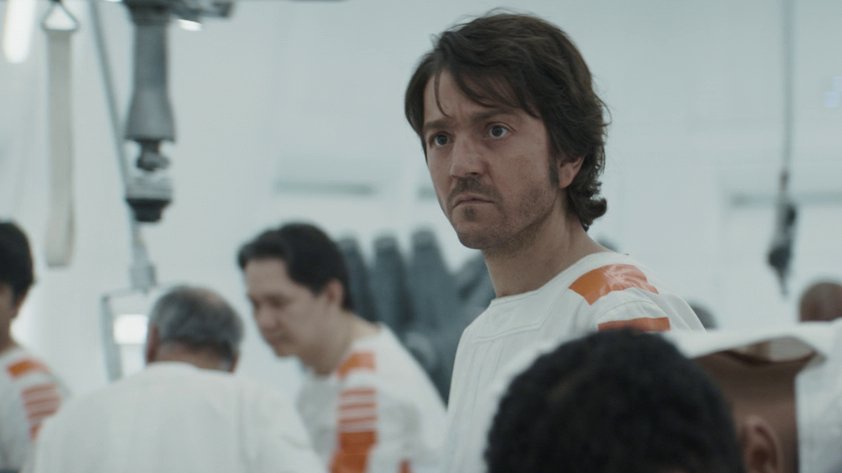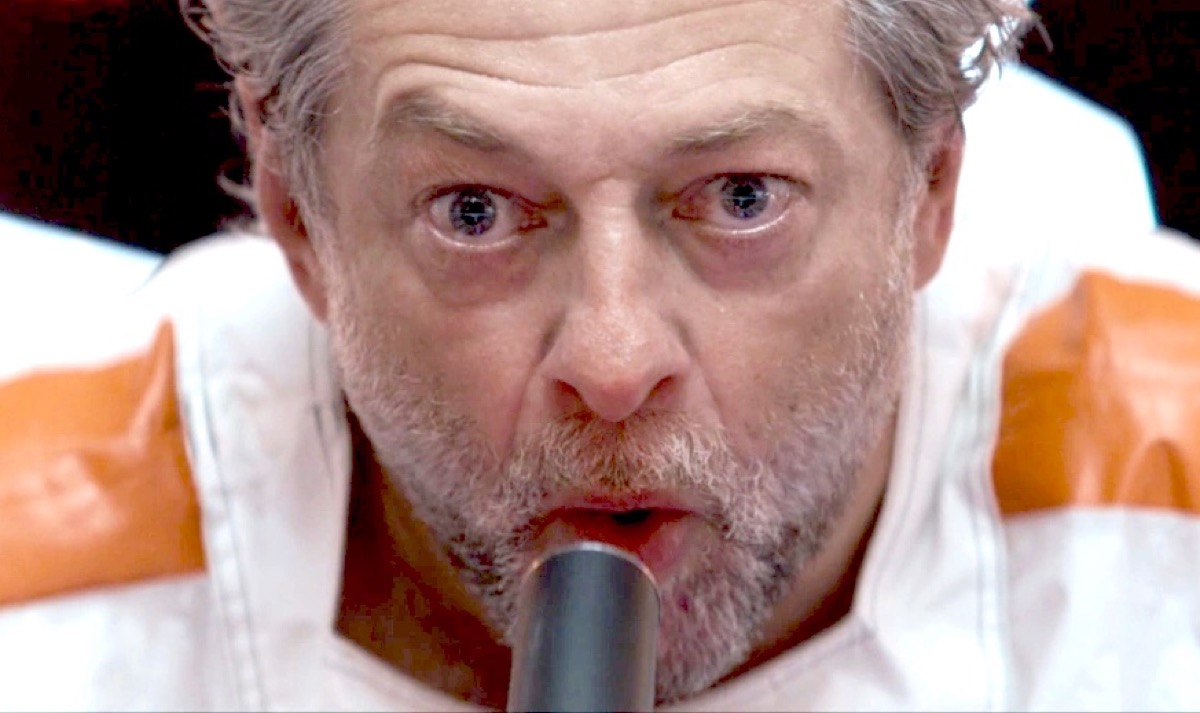In this week’s episode of Andor, “One Way Out,” Cassian (Diego Luna) finally breaks out of the prison on Narkina 5, thanks to the help of Andy Serkis’s Kino Loy. It’s a gripping and moving episode overall—but, like the courtroom scene we saw a few weeks ago, it also delivers some powerful commentary on how oppressive regimes stay in power.
This post contains major spoilers for Star Wars: Andor Episode 10, “One Way Out.”
To recap: In Episode 9, “Nobody’s Listening!” the inmates on Narkina find out that no one actually gets released from the Empire’s prison system. Instead, they leave their units and get funneled back into the system somewhere else. When word gets out that a “released” prisoner was mistakenly transferred back into a different unit at the same prison, the guards kill an entire floor to hush it up. Upon realizing that he’s never going to be rewarded for complying with the system, Kino becomes a coconspirator by uttering an unforgettable line.
This week, Cassian and the others put their escape plan into action by sabotaging the electrified floor and rushing the guards. Cassian and Kino head to the prison’s control room, and when they arrive, we get one of the most satisfying scenes in the series.
You know that deep, menacing voice that barks orders at the prisoners and threatens to fry them? Turns out it belongs to … some nebbishy guy at a microphone. His voice is electronically distorted to sound deeper than it is, and the moment he finds himself with a blaster to his face, he complies with everything Cassian and Kino tell him to do. The voice of Narkina is so unimportant that we never even learn his name.
Once the floors are turned off, the prisoners quickly overtake the prison and make their escape. How do they do it? By showing each other—and the audience—what real power looks like.
Leaders overtake tyrants

The reveal of the prison’s voice isn’t just satisfying because one guy gets his comeuppance. It represents the facade of the entire prison.
As Cassian and Kino realize, in the wake of Ulaf’s (Christopher Fairbanks) death, that Narkina 5 has much less power than the prisoners have been led to believe. “They don’t have enough guards, and they know it,” Cassian tells Kino. “They’re afraid. They just killed a hundred men to keep them quiet.” When Kino argues that the mass murder just shows how powerful the prison is, Cassian shakes his head. “Power doesn’t panic,” he says.
And, indeed, all through the prison break, we see guards panicking. One fires his blaster for a solid minute before it occurs to him to electrify the floor. Other guards huddle in locked rooms, praying the prisoners won’t break the doors down. Their hierarchy crumbles, leaving them scrambling to save themselves. The tyranny of Narkina 5 relies on secrecy, alienation, and illusion to maintain control, and now that the prisoners have access to both knowledge and each other, they’re unstoppable.
Meanwhile, Cassian and Kino show the prisoners what real leadership looks like. Stepping up to the microphone, Kino tells the prisoners everything—that their sentences are arbitrary, that the prison is understaffed—and delivers one of the most rousing speeches we’ve seen in any Star Wars project. “You need to help each other,” he says. “You see someone who’s confused, someone who’s lost, you get them moving and you keep them moving until we put this place behind us.” Kino even seems to steal one of Cassian’s lines from earlier in the episode, but that’s okay. Cassian knows that the speech has to come from Kino, and their goal is survival, not ego.
The core of Kino’s message to the prisoners is that power comes from solidarity and mutual aid, which are exactly the qualities that the prisons—and the Empire—try to stamp out. And unsurprisingly, those are the qualities that real regimes try to stamp out, too.
What does Andor say about mass incarceration?
Let’s be clear: Andor isn’t spreading the message that prison breaks are easy. Cassian and the other inmates get very lucky: They see an opening for a potential escape, and they’re able to pull it off. Their plan could have just as easily ended with all of them fried.
However, the series does draw a strong parallel between Cassian’s plight and the real systems that enable mass incarceration, especially in the United States. The criminal justice system railroads people into years-long sentences, where prisons then profit from their labor. They limit prisoners’ ability to communicate and access the outside world, while encouraging their guards to dehumanize the inmates. On a broader scale, Republicans scrabble to stay in power through propaganda, voter suppression, and gerrymandering. They don’t have the numbers to rule through the will of the people, and they know it.
How many of Narkina’s inmates will survive and find freedom in the wilderness beyond the prison? It’s hard to say, but their ability to come together and help each other has given them a decent chance. With fascism on the rise and mass incarceration booming, viewers might learn a thing or two from their example.
(featured image: Lucasfilm)










Published: Nov 9, 2022 03:58 pm